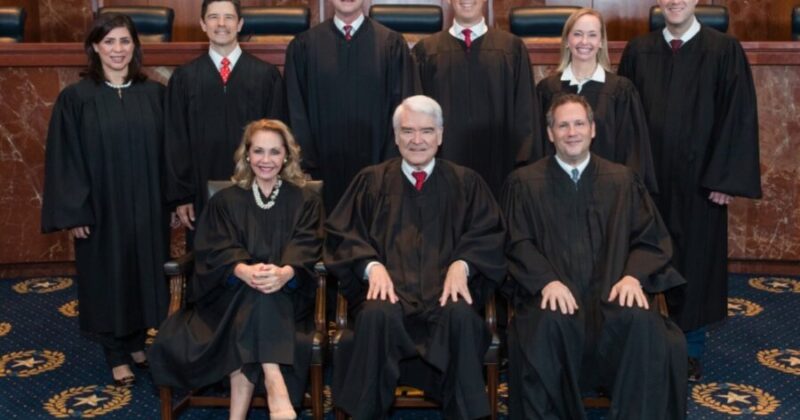On June 28, the Texas Supreme Court ruled that a Texas law prohibiting doctors from performing sex change surgeries on children does not violate the state’s constitution.
“The legislature made a permissible, rational policy choice to limit the types of available medical procedures for children, particularly in light of the relative nascency of both gender dysphoria and its various modes of treatment and the legislature’s express constitutional authority to regulate the practice of medicine.”
“We therefore conclude the statute does not unconstitutionally deprive parents of their rights or physicians or health,” Texas Supreme Court Justice Rebeca Huddle wrote for the majority.
The law in question, which took effect in September 2023, bans various procedures and medications for children who identify as or are questioning a different gender, such as castration and hormone treatments.
Previously, Texas District Judge Maria Cantú Hexsel ruled that parents and children who filed suit against the law were likely to succeed in their challenge.
In her ruling, she stated that the law probably violates the Texas Constitution “by infringing upon the fundamental right of parents to make decision concerning the case, custody, and control of their children”
The Texas Supreme Court later issued an order rejecting an attempt to block the law from going into effect as it considered the case.
In the new ruling, the majority said that it was not weighing in on appropriate treatments for children with gender dysphoria.
“The question we are called upon to answer is a distinctly legal one: whether plaintiffs in this case have established a probable right to relief on their claims that the legislature’s prohibition of certain treatments for children suffering from gender dysphoria violates the Texas Constitution,” Justice Huddle said.
While parents have a fundamental interest in taking care of and controlling their children free from government interference, “this interest is not absolute,” according to the ruling.
“When developments in our society raise new and previously unconsidered questions about the appropriate line between parental autonomy on the one hand and the legislature’s authority to regulate the practice of medicine on the other, our Constitution does not render the legislature powerless to provide answers,” the ruling reads.
The Texas Constitution states that “no citizen of this state shall be deprived of life, liberty, property, privileges or immunities, or in any manner disfranchised, except by the due course of the law of the land.”
According to the majority, the plaintiffs in the case have not identified a constitutionally protected interest.
Justice Huddle stated that lawmakers have the authority to regulate medical treatments for both adults and children.
She also noted that the plaintiffs are seeking “relatively new medical procedures and treatments for a relatively newly defined medical condition.”
In a dissent, Justice Debra Lehrmann said that the ruling “effectively forecloses all medical treatment options that are currently available” to children with gender dysphoria “under the guise that depriving parents of access to these treatments is no different than prohibiting parents from allowing their children to get tattoos.”
She said she found the law to be unconstitutional.
Texas Attorney General Ken Paxton celebrated the ruling, saying in a statement that the court upheld a law “protecting children from dangerous gender confusion procedures by prohibiting puberty blockers, cross-sex hormones, and mutilative surgeries on minors.”
“We will always defend children in Texas from these irreversible procedures,” he said.
Share your thoughts by scrolling down to leave a comment.

